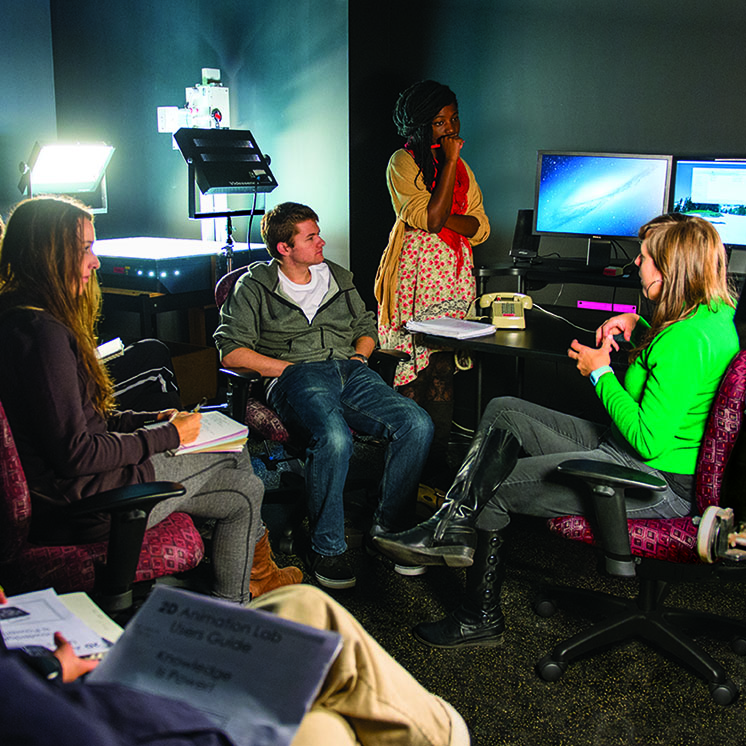Spanish, Beginning I, II, III (B)
REVISED
Fall 2015, Winter 2016 and Spring 2016 quarters
Taught by

Prerequisites
Students in Beginning Spanish I gain foundational skills and begin efforts to communicate in the language. This immersion-mode Spanish course is designed for students with little or no experience in the language. Initially, students listen closely, acquire useful vocabulary and learn basics of pronunciation. Students practice speaking and share readings in small collaborative groups. All along we strive to create an active, stress-free learning environment. In-context topics include people, school, pastimes, time, home, food, and travel. Elements of grammar are integrated into written practice exercises. The textbook, audiovisuals, music and games complement the learning. This Beginning Spanish sequence continues on with courses in winter and spring quarters.
In Beginning Spanish II, students build upon what they learned previously to develop Spanish language skills in listening comprehension, conversation, reading and writing. One prior quarter of college-level Spanish or one year of high school Spanish is required. The course takes place entirely in Spanish in an interactive learning environment. Conversation sessions in small groups involve practical topics. Class discussions and audiovisual presentations cover diverse issues related to Latin American societies and Hispanic cultures. Students expand their range of vocabulary, with emphasis on verbs in past tenses, pronouns and other key elements of grammar. Written assignments are extensive, with opportunities for self-directed creative writing and reading. This course sequence continues into spring quarter.
In Beginning Spanish III students continue to build their knowledge base of the foundational communicative structures, including: use of reflexive verbs, indefinite and negative words, preterite of irregular and stem-changing verbs, double object pronouns, the imperfect tense, contrasting uses and meanings of preterite and imperfect tenses, familiar and formal commands, and the present subjunctive. These structures are acquired while communicating about the following: describing one’s daily personal hygiene and life routines, shopping for and describing food and preparing meals, parties and celebrations, family relationships and stages of life, identifying parts of the body and symptoms and medical conditions to obtain medical assistance and daily domestic chores and routines.
Program Details
Fields of Study
Location and Schedule
Campus location
Olympia
Schedule
Offered during: Evening
Advertised schedule: Tue/Thu 7:30-9:15p. First Spring meeting March 29, 7:30p, Seminar 2 D3107.
Books
Online Learning
Revisions
| Date | Revision |
|---|---|
| February 10th, 2016 | Spring/Beginning III schedule changed: will meet Tue/Thu 7:30-9:15 (was Mon/Wed) |
| May 14th, 2015 | Meeting days have changed: Course now meets Tu/Th (was M/W) |
 my.evergreen.edu
my.evergreen.edu

 Fall
Fall  Winter
Winter  Spring
Spring